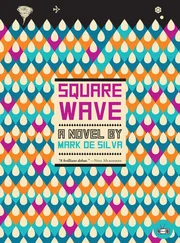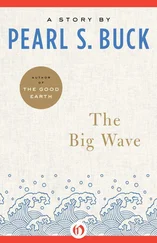A few days before we left for Yala, Ma’s seamstress made some dressing-up clothes for Malli. A parrot outfit and a large blue satin sack adorned with gold stars for his costume collection: his Christmas presents. He wore his parrot outfit on Christmas night, and it was tight around the ankles. We’ll have it altered when we get back to Colombo tomorrow, Ma told Malli. Now I remember: some months after the wave, when I was scouring the ruins in Yala, I found that blue sack. It was entangled on the branch of a dead tree, intact, the satin still agleam.
I sit on the floor of my parents’ bedroom, and it seems vast now, cleared of its furniture. Ma would drape her saris standing in front of the mirror that hung on one wall. I can see her fasten a pleat, reaching for a pin from a white porcelain bowl, the pin beaded with a tiny button so the silk wouldn’t tear. Her saris were her art, they filled mothballed wardrobes in their bedroom and in her dressing room. She despaired that I didn’t show adequate enthusiasm for her collection. “Who’s going to wear all these saris when I am dead? I don’t know why I bother to buy so many,” she’d say. Or she’d tell me, “You are so boring, such a shame you became an academic. I saw some women like you going to a conference the other day, so badly dressed, I wanted to cry.” Malli was her hope, he understood glamour and flair. “Tell your mum to wear prettier clothes, more makeup,” she’d say to him as he stretched out on her bed admiring his collection of small scented soaps. On our last night in this house, I did dress up, and both my mother and son approved. It was the evening of Malli’s violin concert, and I wore one of Ma’s saris, a crimson silk. Malli watched me dab on some lipstick and told me he had his own lipstick, I could use it if I liked. Next time, I said.
My parents’ bedroom leads to the balcony on which my mother enacted her daily farce with the fishmonger. Each morning he’d arrive at the gates screaming out the contents of the baskets tied to the pole he had slung across his shoulders. She’d yell to him that she needed nothing, although she intended to buy his entire catch, and he’d leave, loudly disgruntled, full well knowing he’d be back. They’d repeat this for some hours before he emptied his baskets by the gate, his day’s work quickly done, and Ma would have more fish than she needed but at half his asking price. Steve would look at the crows and flies rushing to the bloodstained gravel by the gate and ask my mother if there was not a more efficient way to shop.
My parents helped Steve and me negotiate life in Colombo. In their minds we were still children, needing to be looked after. And in these years I’ve not permitted myself to yearn for their care. I’d feel even more perilously alone if I did, I’ve thought. Yet here in our home, snug in these familiar surroundings, I can’t help but crave their comfort. Each night my father would stand on this balcony smoking his last cigar for the day. I want the smell of that smoke to reach me now and make my eyes sting just as it did then, although then I always complained about it.
I settle into our life in this house and am suddenly chilled. As always, I think about how I didn’t stop. When we ran from those waves, I didn’t stop at the door of my parents’ hotel room. I decided not to. A split second it was, and I didn’t know then what we were running from or running to, but I decided that.
The last time I saw my mother, it was the night before the wave. After dinner on the terrace of the hotel, I said goodnight to her. I was hurried, the boys were tired, and I was taking them to bed. Goodnight was all I said. My father I saw the next morning when he knocked on our door to take back the pair of binoculars that Vik had borrowed from him. He was packing to leave. I only half-opened my eyes. Why are you packing so early, why do you have to be so bloody organized, I thought.
He always was meticulous. His study is vacant now. I drift in this space that once had such order. Over there by the door was where his black lawyer’s robes used to hang. I twirl my fingers in the dust on the bare bookshelves that line the walls.
For some thirty years I spent time with my father in this room, browsing his library. When I was about ten, I discovered the tranquillity of my father’s study at night and began to explore his vast book collection. I would sit cross-legged on the floor here, immersed in The Jungle Tide by John Still. I learned that you could understand an elephant’s mood from its footprints, that you could tell if it was running in fear or ambling in hope of water. I was transfixed by the tales of jungle gods — anyone who didn’t make them an offering of two leaves fixed on a twig, they’d smite with blindness. My wonder and enthusiasm pleased my father. He was a reserved and contained man, and it was among his books that we began to savor each other’s company.
In these past six years I’ve recoiled from remembering my childhood. I felt foolish about my youthful contentment, was niggled by a notion that even as an unsuspecting child I must have been marked, doomed. But now here in the home I lived in as a child, I am more open to glimpses of what a gloriously happy time it was. Apart from when our dachshund Nutmeg was severed in two by a double-decker bus.
I remember being mindlessly happy when as a teenager I made my brother late for school by adjusting and readjusting myself at the mirror by the front door when he was waiting for me in the car, our driver anxiously sounding the horn. I remember being a contented eight- or nine-year-old listening to our old ayah Seelawathie tell us stories of yakkas (demons) on nights my parents were out. Sometimes I’d fuss before they’d leave — why do you have to go dancing again? — and they’d calm me with a spoonful of cough syrup and rush out, my mother wearing a puffed-up hairpiece and a glitzy nylon sari, so fashionable in Colombo in the 1970s. Dozy with the medicine, I’d join Seelawathie in reciting the names of a long list of yakkas whom she insisted were nearby, hovering around us. Demons didn’t matter to me, I felt safe in this house.
Years later when I was at Cambridge, every summer I brought friends back to my home. They had never been to Asia before, and these English boys would be impressed by the din of crickets as they sat out on the lawn at night drinking whiskey with my father. My mother patiently took David to the doctor about his dodgy stomach while he expounded to her the urgency of world revolution, sitting in the back of her chauffeur-driven car. And one summer I shamelessly two-timed Steve and another boyfriend, Sri Lankan, not stopping for a moment to imagine that one day Steve and I would be creating a home for our sons in this house.
You have two homes, Steve and I always told the boys, and “Aachchi house” is your Colombo home. They needed to be rooted here, growing up as English — Sri Lankan children in London. And they went from one home to another, and from one country to another, effortlessly.
In this house my parents thrived as grandparents. They spoiled my children and took on their interests and curiosities with vigor and delight. I was amused by how my mother would willingly “go in goal” in the back garden while Vikram slammed a football at her. Vik would sit on my father’s lap in his study and read books about man-eating tigers in India. Ma was as wound up as Vik in the days before another Harry Potter book came out. Malli never understood the need to wait for a sequel. “Why can’t you get a pirate copy?” he’d ask, paying little heed when his grandfather told him in his lawyerly way that you couldn’t pirate books that were unwritten and that it was, in fact, wrong to pirate anything. “When I grow up I’m going to be sooo smart,” Malli would say. “I’m going to make pirate DVDs and make pirate books before anyone writes them.”
Читать дальше












